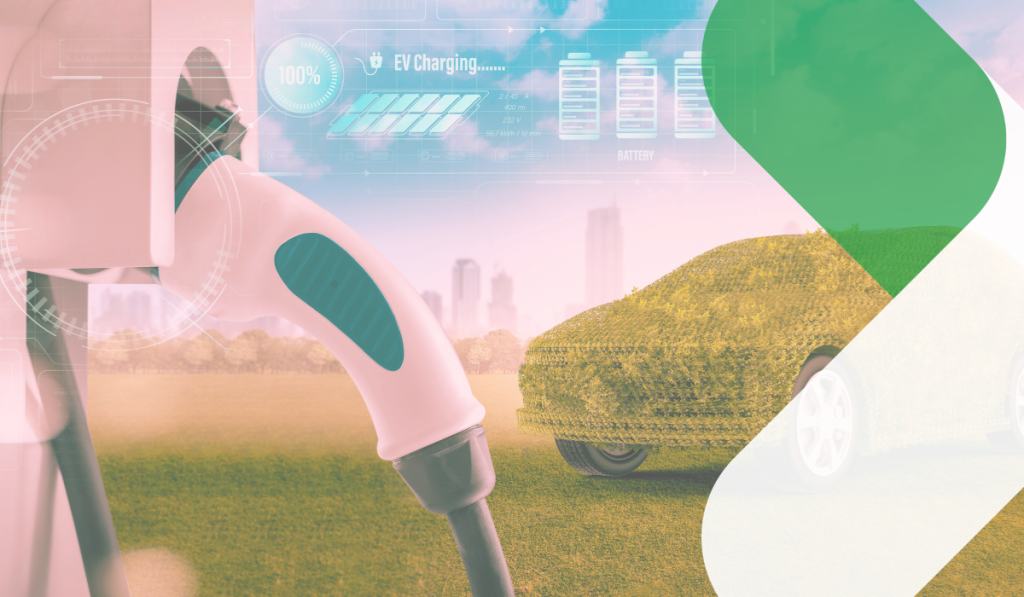
AI-Powered LiDAR: A New Era of Perception
How AI and ML enhance LiDAR technology by overcoming data processing challenges, enabling advanced applications in autonomous systems, robotics, and 3D mapping, and more.
As the landscape witnesses the emergence of various automotive software technologies such as autonomous driving, vehicle connectivity, digital cockpits, and advanced diagnostics, the demand for automotive software engineers and developers will inevitably surge.
The automotive industry provides specific challenges and possibilities for software engineers. Software developers must thoroughly understand both automotive systems and software development concepts. They must integrate the software with intricate hardware components to ensure automotive systems’ security, dependability, and safety. However, this industry presents many opportunities for creativity, professional advancement, and shaping the future of mobility.
This article aims to give aspiring software engineers a thorough roadmap for navigating the path to a rewarding career in the field of automotive software development. We’ll discuss how software engineering fits into the automotive business, the skills, and expertise needed to work in this domain, and how to become a fully qualified automotive engineer.
In today’s automobile development landscape, automotive engineering holds significant importance, driven by many advanced technologies and innovations. The ever-increasing expectations of potential customers across various industries have elevated the demands placed on automotive companies. This field of expertise empowers manufacturing and design companies across numerous sectors. The integration of AI-driven solutions and programming modules directly impacts senior executives and supervisors, facilitating the rapid expansion of the production capacity within factory plants.
Automotive software engineers excel in several key areas. They know software architecture, real-time operating systems, and embedded systems. This understanding allows them to develop software that effectively communicates with a vehicle’s hardware. Additionally, software engineers in the automobile industry are knowledgeable in coding languages like Python, C++, and C. Additionally, they are knowledgeable in functional safety standards like ISO 26262, cybersecurity, and software development processes. Because of these abilities, they can create dependable, secure, and safety-critical software for automotive applications.
The demand for software engineers is directly impacted by the enormous technological shifts the automotive sector faces. There is a demand for software developers with expertise in electric powertrain systems, battery management systems, and charging infrastructure integration due to notable developments like the rise of electric cars (EVs). The ability for autonomous vehicles to drive themselves has advanced significantly, necessitating the creation of algorithms and software for safe and dependable autonomous driving. This requires software developers experienced in machine learning, computer vision, sensor fusion, and control systems.
Additionally, advanced capabilities like natural language processing (NLP), intelligent navigation, and predictive maintenance are made possible by integrating AI and ML in automotive software, opening up prospects for software developers with knowledge of AI and ML.
Additionally, software development for vehicle-to-vehicle communication, vehicle-to-infrastructure integration, and cloud-based services requires software engineers skilled in IoT and cloud computing.
These technological trends shape the requirement for software engineers who can innovate, adapt to new technologies, and guarantee the safety and dependability of software systems in the automobile industry. Software engineers can position themselves as valuable assets in the competitive environment of automotive software engineering by remaining informed and learning relevant skills.
Being proficient in programming languages is essential to laying a solid basis for software engineering. Choose a language compatible with your objectives and areas of interest to start. Popular languages like Python, Java, C++, and JavaScript are frequently utilized in the software business. Learn the language’s fundamentals, such as grammar, variables, control flow, and functions. Practice developing code regularly to solidify your comprehension and learn more complex concepts like object-oriented programming, error handling, and debugging techniques. You can practice your abilities with interactive assignments from online coding platforms and tutorials.
Software development focuses on problem-solving, breaking complex issues into manageable parts. A robust knowledge base permits tackling challenges with a clear and organized attitude, leading to practical solutions. This ability is crucial for any software developer. Early problem-solving skills build the foundation for tackling more complex problems as you progress through the learning process for coding.
In the constantly changing world of technology, adaptability, and lifelong learning are essential. Frameworks and programming languages come and go, but a strong foundation gives you the flexibility and agility to deal with these changes. Transferring abilities between languages and frameworks is possible by grasping fundamental ideas and concepts.
Software development involves debugging and troubleshooting, and effective error detection and correction are made possible by a solid knowledge foundation. One can identify problems and make the proper adjustments by comprehending the linguistic nuances and reasoning. This capacity to troubleshoot improves the creation of trustworthy and error-free software and saves time.
There is a growing need for effective and scalable solutions as coding abilities advance. A solid foundation allows for strategic problem-solving through comprehending design patterns, data structures, and algorithms. Code optimization, performance enhancement, and the development of scalable applications are all made possible by this understanding. Building elegant, practical solutions that last time requires a strong foundation.
The transition to connected, autonomous, shared, and electric vehicles (CASE) significantly changes traditional automotive design paradigms. AUTOSAR (Automotive Open System Architecture) is one such significant change.
AUTOSAR is a global development partnership of automotive manufacturers, suppliers, and other leading automotive electronics, semiconductor and software companies. Designed to create an open and standardized software architecture for automotive electronic control units (ECUs), AUTOSAR aims to increase the scalability and interchangeability of software modules across various vehicle platforms. This standard is now widespread in the industry and is becoming an integral part of the development of modern vehicles.
Understanding and implementing AUTOSAR has become an essential skill for automotive software engineers. With the increasing complexity of automotive electronics and the growing amount of software in cars, the need for standardized, modular and interchangeable software components is more important than ever. As the industry moves toward greater levels of vehicle autonomy, this complexity will only increase.
AUTOSAR provides a framework to handle this complexity, allowing more advanced features to be developed while improving reliability and safety. Thus, knowledge of AUTOSAR enables engineers to design, implement and test complex automotive software systems, making them highly valuable to employers.
In addition, AUTOSAR also contributes to the understanding of vehicle functions at the system level, not just at the component level. This holistic perspective is important for automotive software developers because it enables better integration of various vehicle systems and software, resulting in more reliable, efficient, high-performance vehicles.
Aspiring software engineers in the automotive industry have access to thorough education and training through degree programs in software engineering and automotive. Programming languages, algorithms, software design patterns, testing, and project management are just a few of the topics covered in a degree in software engineering. Students acquire practical software development experience and learn to use engineering concepts to guarantee software quality. Students who complete the degree will be prepared to design, build, and maintain software programs in the automotive sector.
There are also specialized courses in automotive engineering that focus on developing software for automobile systems. Automotive technology, vehicle dynamics, powertrain systems, and automotive safety are all topics covered in these curricula. They also include real-time operating systems, communication protocols, embedded systems, and auto diagnostics. Autonomous vehicles and cutting-edge driver assistance systems are only two of the unique challenges students in automotive engineering programs learn to create software solutions for.
While choosing a degree program, ambitious software engineers should consider curriculum relevance, teacher experience, industry contacts, internship possibilities, and access to cutting-edge facilities. They should also assess the program’s standing, accreditation, and alums’ effectiveness in obtaining suitable employment. A competitive edge and alignment with professional objectives can also be obtained by examining the availability of specific courses or specializations in automotive software engineering within the selected degree program.
Due to the constantly changing nature of the industry, automotive software engineers must be committed to lifelong learning and professional development. The following options are available to professionals to enhance their professions and keep current:
Industry-specific events provide insightful information on cutting-edge technologies, market trends, and best practices. Professionals may stay informed and network with peers thanks to expert speakers, interactive seminars, and networking events.
Online learning environments offer adaptable solutions for learning software engineering for the automobile industry. Professionals can access courses on cybersecurity, functional safety, embedded systems, automotive software development, and more to advance their abilities at their speed.
Here’s a list of the most popular and reputable online courses in automotive software engineering as of 2023:
Industry certifications demonstrate deep domain knowledge and credibility. These certificates frequently require passing rigorous tests or completing extensive examinations.
Here’s a list of certificates each seasoned automotive software engineer should pursue:
It is essential for automotive software engineers to understand the V model – a widely used development framework in the automotive industry, particularly for safety-critical systems. It outlines a systematic approach to software engineering, testing, and verification, ensuring that each stage of the development process is rigorously aligned with the corresponding testing and verification activities.
By understanding the V model, automotive software engineers can effectively navigate the development lifecycle, from requirements analysis and system design to coding, unit testing, integration, and validation. They can identify key milestones, deliverables, and dependencies at each stage, enabling them to develop high-quality and reliable software solutions.
Additionally, knowledge of the V model helps automotive software engineers align their work with industry standards and compliance requirements, such as ISO 26262 for functional safety in automotive systems. It ensures that they have a holistic understanding of the development process and can contribute effectively to the overall success of automotive software projects.

Frameworks describing the abilities and specialization of individuals in software engineering include the T-shaped engineer and the Pi-shaped engineer concepts. These models demonstrate the balance between engineers’ variety and depth of knowledge in their respective fields.
The concept of multidisciplinary engineering, initially introduced by Airbus, revolutionized the traditional approach where individuals were confined to specializing in a single technology area (represented as a vertical line in the T-matrix), with limited knowledge of related technical topics (defined as a horizontal line in the T-matrix).
In software engineering, this one-dimensional focus resulted in developers lacking a comprehensive understanding of the business aspects and failing to align their work with their clients’ mission, vision, and values. Consequently, their custom products suffered from a strong technical emphasis but a disconnection from the overall development strategy, engagement model, and post-production overheads, and delivered suboptimal, bulky, and bug-ridden solutions, leading to negative business implications.
A new generation of engineers emerged to address these shortcomings, embodying a π-shaped skill set. These engineers possess specialized technical knowledge across multiple disciplines (represented by the full T-matrix), alongside a solid comprehension of business functions (represented by the horizontal line in the π-matrix), while also mastering the intricacies of innovation and its inherent contradictions (represented by the second vertical line in the π-matrix).
π-shaped engineers operate at the intersection of technology, business, and society. They grasp the critical performance indicators and functions such as sales, marketing, and HR, enabling them to create tangible value and drive current research endeavors.
To effectively manage expectations and research and development outcomes, these engineers must be adaptable and open to making changes. Project requirements can significantly transform after the minimum viable product (MVP) stage, necessitating adjustments based on user feedback.
Furthermore, they must possess the flexibility to abandon their initial plans and redirect their efforts toward new objectives. This may involve relinquishing established client relationships and selectively prioritizing essential features to facilitate scalability. They are also expected to be agile in adapting their research concepts and shifting their focus from the original trajectory. While it may appear linear, the process is cyclic, mirroring the nature of innovation itself. Therefore, engineers must be capable of accommodating contradictory directions.
It takes a proactive approach to skill development to go from a T-shaped to a π -shaped engineer. It entails consistently broadening your knowledge in your chosen field, keeping up with the most recent business trends, and actively looking for chances to put your expertise to use. This can be accomplished by engaging in self-study, attending seminars and workshops, working on pertinent projects, and cooperating with other professionals.

Software engineering fundamentals, expertise in automotive systems, and practical experience are all necessary to succeed as a software engineer in the automotive industry. A successful career in automotive software engineering requires pursuing relevant education, looking for training opportunities, and getting real-world experience.
The optimal approach to becoming a software engineer in the automotive sector combines theoretical understanding, real-world expertise, and ongoing development. You will be well-positioned to succeed in this exciting sector if you embrace evolving technologies, keep up with industry trends, and develop an extensive skill set.
It’s time to start moving toward a career in automotive software engineering if you have a passion for both software engineering and the automotive sector. By following the advice given in this blog article, you can start a fulfilling journey that enables you to influence the automotive environment through software innovation and contribute to the future of transportation.
At rinf.tech, we have a dedicated Automotive Business Unit in Timisoara (Romania) that specializes in software engineering and delivery of custom automotive tech solutions to OEMs and Tier 1 Suppliers. Our solutions range from ADAS, digital cockpit and instrument cluster development to low-level drivers for MCUs to Radar and Lidar, and beyond.
Besides working on challenging yet exciting projects for some of the world’s most famous automotive brands, our software engineers and solution architects indulge in meticulous research like one on the Automotive Cybersecurity.
By joining our Automotive Team, you’ll have the chance to broaden your knowledge, push boundaries, and contribute to shaping the bright future of automotive technology.
Don’t miss this incredible opportunity to work on exciting projects, collaborate with top industry professionals, and immerse yourself in the dynamic world of automotive software engineering. Check out our job openings in Timisoara!

How AI and ML enhance LiDAR technology by overcoming data processing challenges, enabling advanced applications in autonomous systems, robotics, and 3D mapping, and more.

Offering insights into how the latest AI advancements will impact consumers, manufacturers, and the broader environment in 2025 and beyond.

Showcasing the environmental and economic benefits of integrating sustainable materials and robust recycling practices into the automotive value chain.
Copyright © 2023 rinf.tech. All Rights Reserved.
Terms & Conditions. Cookie Policy. Privacy Policy.
Politica Avertizari de Integritate (RO)